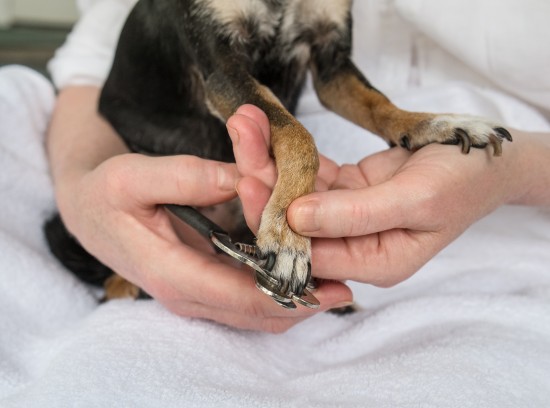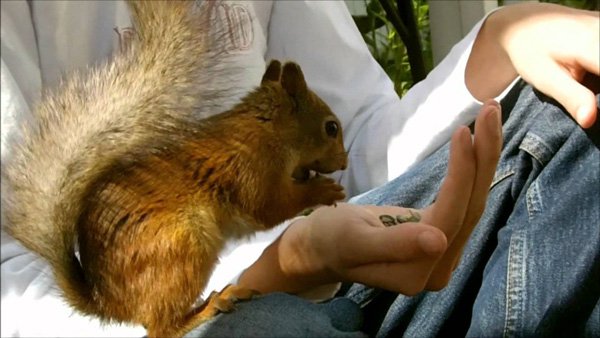
Musculo-skeletal inflammation is a major cause of discomfort and debility in millions of older canines. Inflammation caused as a result of excess free radical activity is well established. (Segal, 1984; McCord, 1983). Problems with inflammation in the joints may be due to degradation of synovial fluid in the cavity through free radical reactions (McCord, 1974).
Most people report good results eliminating their pet's issues after using all-natural pet health supplements like Antioxidant Treats or Sprouted Granules for a short period of time. In an unpublished *Vet study conducted on 387 dogs of multiple ages with various types of Musculo-Skeletal problems, 88% of test subjects showed marked improvement in as little as 8 days!
While this is true for most pets, others do take longer to respond. More severe problems may take 1 to 2 months before the body can adapt the nutritional changes. A major contributor to these issues is poor quality pet foods, or treats which are lacking a proper balance of usable amino acids, vitamins and minerals or the nutritional ingredients needed to maintain good health.
All pets, regardless of age must have a daily source of living dietary enzymes in their diet to help support the body's use of nutritional resources. All-natural Antioxidant Treats or Granules support pets through all stages of life, from puppyhood to old age. These products have shown the ability to support good joint and muscle health and to be very helpful during the accelerated bone growth stages with large breed puppies as discussed by Linda Arndt in her puppy feeding programs.
Arthritis
There are many types of Arthritis and causes of degenerative joint disease in pets and humans. Symptoms include pain, swelling and inflammation and often the destruction of cartilage and joints. In soft tissue injuries, torn ligaments can destabilize the joint area and can cause dislocation of its natural position, sometimes requiring the need for surgery. Antioxidant enzymes, such as Superoxide Dismutase, Catalase & Glutathione Peroxidase are part of the body's own natural defense system. Together, they scour out harmful free-radicals and other toxins from the cells, enhancing their performance. These enzymes are documented to have a positive role in the restoration of Synovial fluid, the natural lubricating substance found in joints.
Rheumatoid Arthritis
Autoimmune Arthritis also known as Rheumatoid Arthritis, happens when the immune system attacks its own body, causing serious pain, inflammation, joint swelling and deformation of the joints. Osteoarthritis such as elbow or hip dysplasia can have numerous causes; genetics, nutrition, injury and normal wear and tear on the joints which lead to inflammation, reduced flexibility and less mobility.
Rheumatoid patients are shown to have low synovial levels of Superoxide Dismutase and Catalase. This scenario leaves these patients with increased exposure to the harmful effects of the free radicals, O2-(superoxide) and H2O2(hydrogen peroxide), and little to stop the ravages of inflammation.
Septicemia often Diagnosed as HOD
Infectious Arthritis or Septic Arthritis/Septicemia, is often diagnosed as HOD (Hypertrophic Osteodystrophy) by mistake. Septic Arthritis is an infection of the blood, and a misdiagnosis can be a life threatening situation for your pet.
Hip Dysplasia
HIP DYSPLASIA is a condition which brings about abnormal formation of the hip joint, eventually resulting in mild to severe arthritic changes. Hip dysplasia is a developmental condition. The primary cause of hip dysplasia is attributed to muscle laxity during the period of growth and development. If muscle tone is inadequate, or if bone growth proceeds at a faster rate than muscle development, the femoral head pulls away from the socket, a process known as subluxation.
Subluxation leads to abnormal wear & tear, and the erosion of the Hip joint, eventually resulting in arthritic changes. The best dietary measure for prevention of Hip Dysplasia is to feed a diet which provides for slow even development between the muscle and bone of the animal.
Elbow Dysplasia
Elbow Dysplasia is caused by improper formation of the joint and progression of severe arthritic inflammation. Elbow Dysplasia can be due to rapid growth as well as the design of the body structure of the dog. Injury can also lead to Elbow Dysplasia, especially if the dog has been fed a high calorie food that promotes rapid growth.
PANO
Panosteitis/PANO is the least invasive of developmental orthopedic diseases in dogs. It is characterized by a rapid rate of growth causing arthritis like aches in the long bone of the legs. It moves from one leg to another as well. Although it is self limiting as they mature, during these episodes of wandering lameness there is considerable pain due to inflammation. Pano normally is seen in older puppies and can last until over 12 months of age if there is not a change in diet to a high quality, meat based moderate protein/fat/calorie food, fed in measured amounts. It is important to slow down the growth process and relieve the discomfort using a natural supplement.
If you have a large breed puppy, make sure to read about orthopedic bone growth issues like such as Pano, OCD and HOD at the Great Dane lady's site.
OCD
Osteochrondritis Dissecans (OCD), is a developmental orthopedic disease often seen in puppies from 5 months - 12 months of age. OCD results from feeding a poor quality dog food with crude forms of minerals, and/or calcium added to a diet. Supplementation of minerals or human foods often unbalance the calcium to phosphorus ratio, causing OCD and separation of joint cartilage from the bone.
Symptoms of OCD are lameness and inflammation upon flexing the leg. There are varying degrees of OCD depending on age and diet. Cartilage separation happens in the shoulder joints, knee (stifle) and hock (ankle) joint.
OCD can be due to trauma to the joint cartilage as well, but if the dog is supported nutritionally to begin with, generally this kind of injury does not happen. Older puppies, 10- 16 months, that have cracks in the cartilage, floating chunks or peeling up of the cartilage, need surgery to remove the debris and stop the pain.
*387 dogs with various musculo-skeletal inflammatory conditions were supplemented over a 30-day period with the enzyme-rich antioxidant treats. The veterinarians prescribing the product reported significant improvements in mobility, range of motion, relief of pain and reduction of swelling in 340 cases in 8 days (88%).
Article submitted by Tim Delaney. Tim Delaney is a multiple dog pet owner and animal advocate. References include Linda Arndt (aka the Great Dane Lady), Nzymes, and Nzymes EU
 Seasonal Hazards In Autumn That Dog Owners Should Watch Out For
Seasonal Hazards In Autumn That Dog Owners Should Watch Out For
 Dog Licking To Indicate Submission
Dog Licking To Indicate Submission
 Treat Equine Ulcer Symptoms With Natural Supplements Available Online
Treat Equine Ulcer Symptoms With Natural Supplements Available Online
 Ten British Horse Breeds Facing Extinction
Ten British Horse Breeds Facing Extinction
 Falling From Your Horse - How To Do It As Safely As Possible!
Falling From Your Horse - How To Do It As Safely As Possible!
 Treating A Split Or Broken Nail In The Dog
Treating A Split Or Broken Nail In The Dog
 Things to Consider Before Buying the Ultimate Chicken Runs
Things to Consider Before Buying the Ultimate Chicken Runs
Things to Consider Before Buying the Ultimate Chicken Runs
Things to Consider Before Buying the Ultimate Chicken Runs
 Eight More Interesting Cat Facts That You Probably Don’t Know
Eight More Intere
Eight More Interesting Cat Facts That You Probably Don’t Know
Eight More Intere
 Does your dog do its exercise?
Does your dog do its exercise?
Pooches can be
Does your dog do its exercise?
Does your dog do its exercise?
Pooches can be
 Basic Grooming Tips For Dogs
Basic Grooming Ti
Basic Grooming Tips For Dogs
Basic Grooming Ti
 Making Sure Chinchillas Stay Happy & Healthy
Making Sure Chinc
Making Sure Chinchillas Stay Happy & Healthy
Making Sure Chinc
Copyright © 2005-2016 Pet Information All Rights Reserved
Contact us: www162date@outlook.com